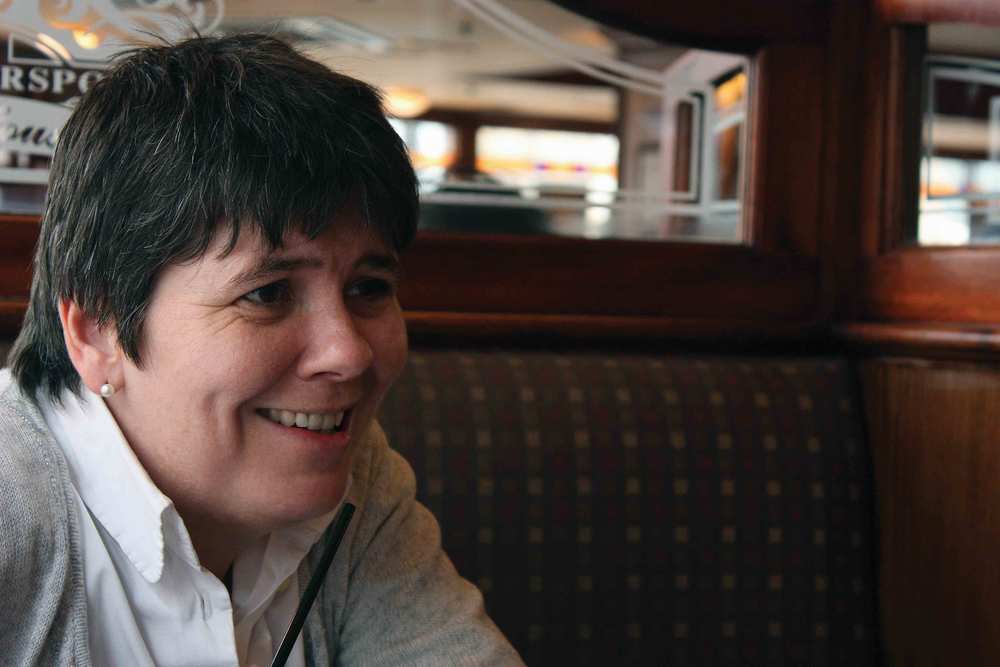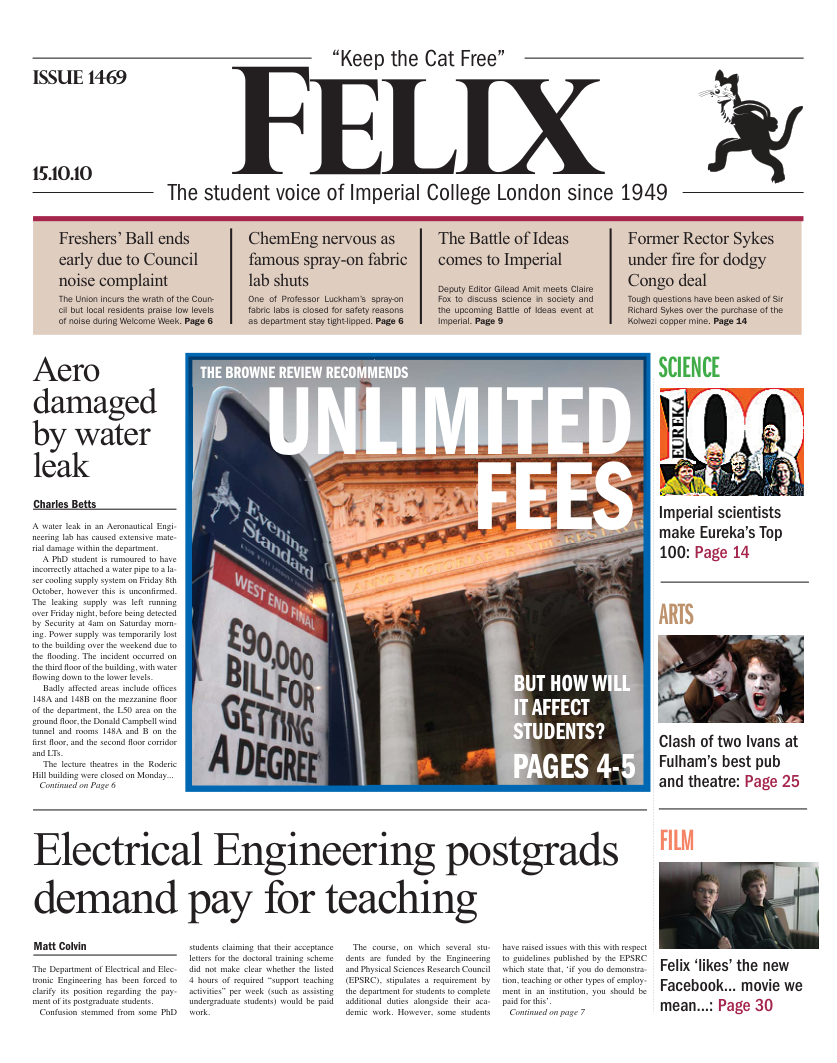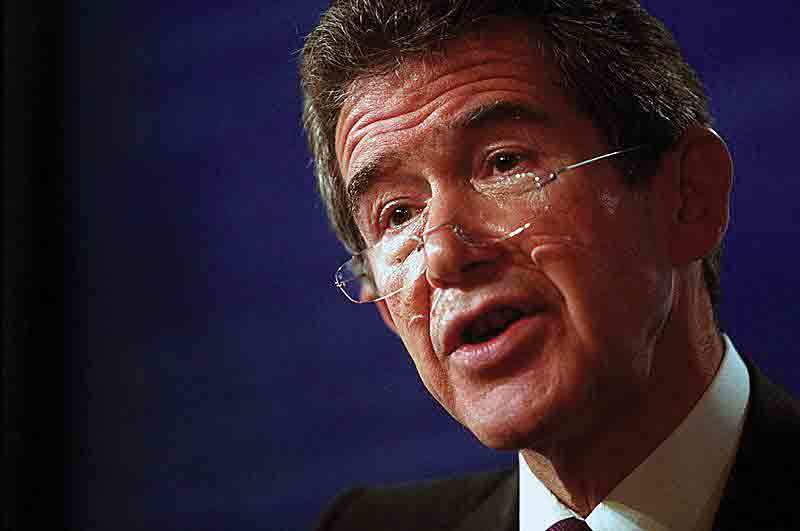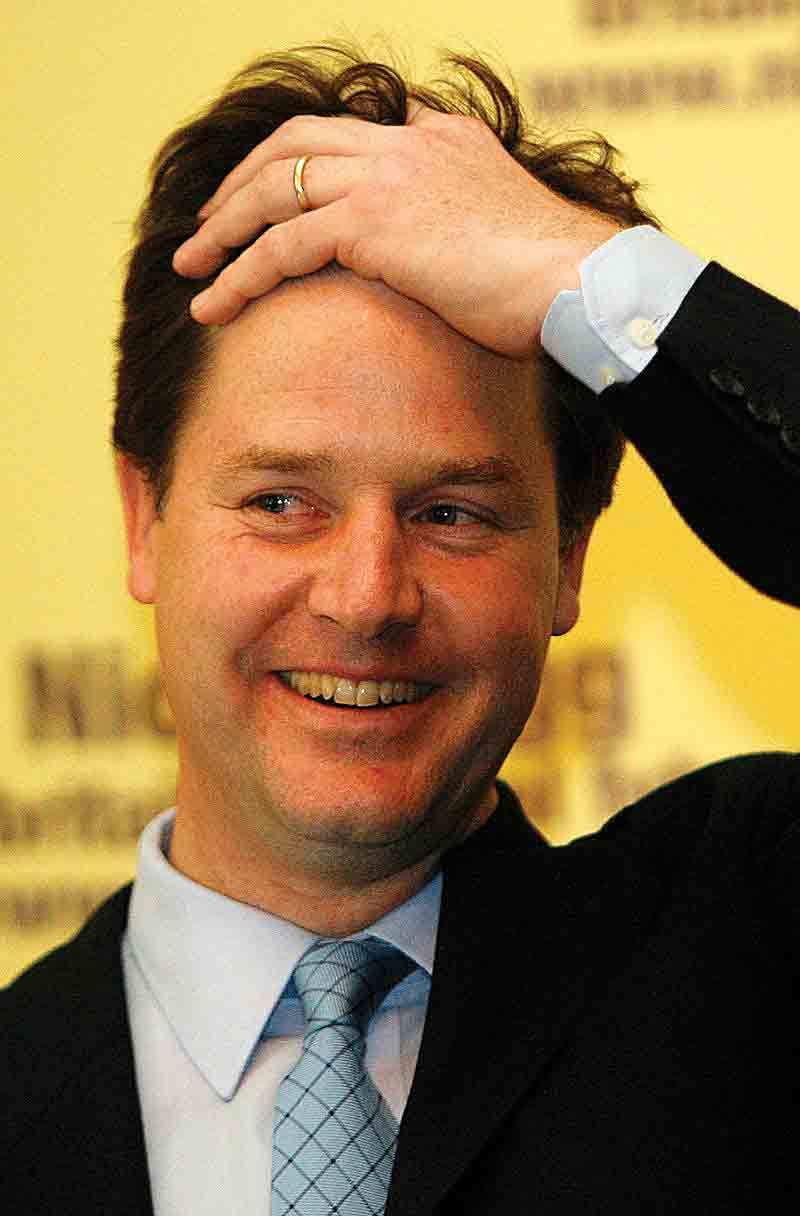Battle of Ideas comes to South Kensington
Gilead Amit interviews Claire Fox, Director of the Institute of Ideas, ahead of its weekend of debates at the Royal College of Art

If I can start by being totally honest, I hadn’t heard of the ‘Battle of Ideas’ before I found out you were coming to the Royal College of Art this year. What would you like people to know before they come along?
When we set it up 6 years ago, we wanted to suggest that there was not an intelligent-enough public debate about very important issues. In the world of science, for example, everyone talks about public engagement or involvement, and that often means ‘dumbing down’ or patronising the public. So we wanted an intelligent public arena – not academia, but something that allowed people to scrutinise and interrogate some of the big questions of our day.
So we pack a weekend full of debates and discussions, and we emphasise that although there are excellent speakers, nobody gets more than 7 minutes to speak. It doesn’t matter how famous they are, or how far they’ve flown from, everybody gets their 7 minutes, sometimes even less. So we have a panel of 5 people, allowing you, in a 90-minute slot, 45-minutes of open conversation with the audience.
We are always aiming for an audience who are prepared to challenge and be challenged, and think about these questions. We want the kind of people who really think they’re not getting the right sort of answers at the moment.
The timetable shows a huge range of subjects covered: from the relationship between teachers and parents, the future of the Catholic Church, crime novels and even the importance of opera. Is there a central, linking theme?
There are some themes, but we’re not trying to pretend all the sessions link in. One of the big themes is the climate of distrust, whether or not it’s corrosive and creating a cynical and misanthropic atmosphere in society. But examining that issue – possibly the lack of trust is because we’re less deferential, which is possibly a good thing.
I’d say that the climate of mistrust has gone too far, and that we’ve internalised a lack of trust towards each other. We’re frightened to let the next-door neighbour look after our kids, we’re told that we can’t be trusted to go near alcohol or we’ll end up as alcoholics. We’re being treated as children by those in authority.
We’re being treated as children by those in authority
Another theme is evidence-based policy – whether there’s a move to hide behind the evidence instead of making moral or political decisions, and the danger of this for science, let alone for democracy. So we’ve got a strand of debates on scientific evidence, looking at controversies around peer review, and whether we’re dealing with policy-based evidence, or evidence-based policy.
One of our big themes every year is ‘a free society’ and the growing climate of illiberalism, that there are things we’re not allowed to talk about. That’s why the slogan of the festival is ‘Free Speech Allowed’.
Why the name ‘battle’? What’s the conflict about, and who’s it against?
We wanted to imply that this was not an anodyne set of discussions. We weren’t trying to reach consensus – there are ideas worth fighting over. That’s not to say we do school-level debating stuff. It was to imply that sometimes people avoid having arguments over things that matter. Sometimes we’re told not to question, whereas we wanted to encourage a more questioning atmosphere, particularly around orthodoxies. People should argue passionately over what they believe in, and that will sometimes mean they argue against each other.
One of the quotations picked up from the booklet was that “morality has been sidelined by facts and statistics”. In what sort of areas do you think there’s an intrusion from science?
The argument is that the first 18 months of a child’s life is the key time, and so parents can’t be trusted to get it right and the state needs to intervene
In a lot of social policy areas, such as child-rearing, the government emphasises the need for the state to have policies of early intervention – to intervene in family life ever earlier. The argument is that the first 18 months of a child’s life is the key time, and so parents can’t be trusted to get it right and the state needs to intervene. People in these arguments always say that ‘the neuroscience shows this.’ I feel this is the use of evidence in a very dangerous way. What happens is that it becomes part of a campaigning political agenda you can’t oppose because no one knows how to challenge the evidence.
There’s a real possible prostitution of science for the needs of policy. A lot of scientists want to feel relevant, and justify the work they’ve put into the research.
You’ve invited a lot of very prominent science speakers to the event, such as former Liberal Democrat MP Dr. Evan Harris and The Times Science Editor Mark Henderson. What will the debate be like on the subject of the role of science in society?
Our concern is that scientists rarely admit that reality is more complicated than the statistics. They don’t trust that the public will be able to handle an issue which has a less black-or-white answer. Scientists contribute to that view, and we suggest we have a more intelligent debate over the role of science in society.
You can’t clamp down on the debate, but you have to be able to use your evidence to win the argument. But even when you’ve proved that, say, the MMR jab doesn’t cause autism, you can’t force people to take it. People should have the freedom to make their own choices.
Science shouldn’t intervene with your own decision-making. In the field of public health, scientists have become too involved in the nanny state system and really quite draconian anti-liberal policies.
There’s a tendency to scientism, which is science being overstretched, suggesting that it can explain every human interaction
There’s a tendency to scientism, which is science being overstretched, suggesting that it can explain every human interaction. I feel science is one of the most important human inventions, but it should’t make claims it can’t support.
The first thing that came to my mind when I heard about your conferences was the similarity to TED. If their motto is ‘Ideas Worth Spreading’, would yours be ‘Free Speech Allowed?
I think so. I’m a great admirer of TED, and they have certainly made a greater business case than I. They have the twenty-minute lectures and that’s brilliant, but we do believe in live debate – this is quite an important aspect.
The Institute of Ideas is quite controversial. We don’t toe the line, and we challenge orthodoxies. We don’t try to pretend in all this that we are neutral. We have very strong opinions, and when we put on the Battle of Ideas, we enter the public arena. We don’t try to chair neutrally, we try to join in the discussion – while ensuring that we always invite our best opponents to speak.
Organisers of the Battle of Ideas Festival have released 30 Imperial-exclusive half-price tickets for the weekend (30 – 31 October at £25 each. These can be bought through the official website at www.battleofideas.org.uk.






